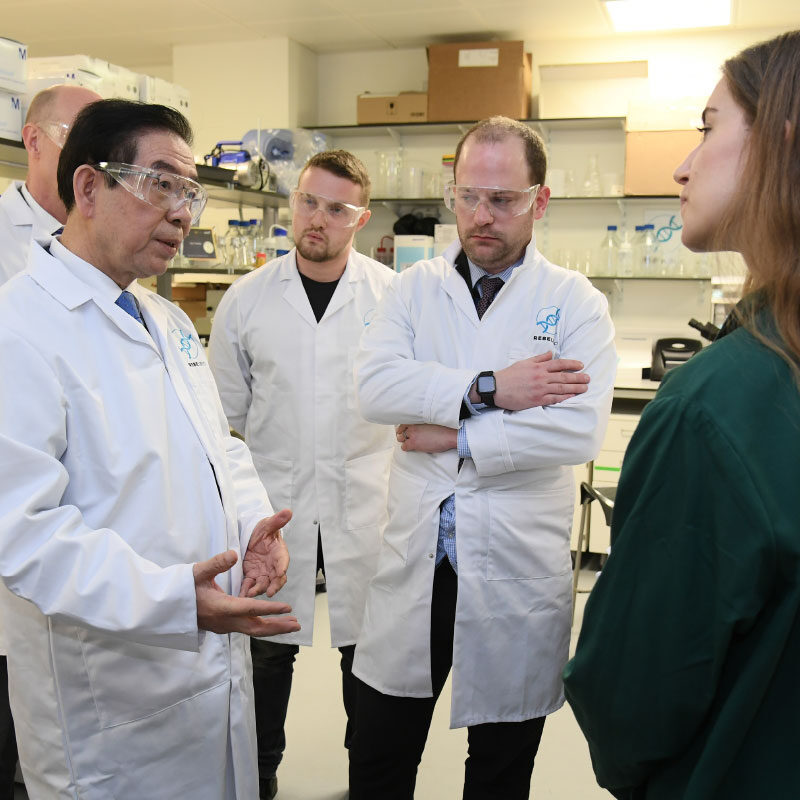Collaborate to Innovate identifies SMEs with innovation or applied research needs and matches them to university research groups with complementary skills or expertise.


Aims and goals
Collaborate to Innovate supports and catalyses partnerships between individuals, companies and organisations who have common goals. Through this activity it promotes the transfer of knowledge and expertise across the life sciences ecosystem, with the end goal of commercialising the innovations resulting from these partnerships.

Programme funding
Until now, there has been a relative lack of
investment in research and innovation by
SMEs due to challenges in accessing funds and knowledge gaps about the relevant expertise within academic institutions. The project aims to help overcome these challenges by promoting engagement between SMEs and the research base, alongside creating inter-university research collaborations and providing the optimum conditions for commercialisation.
How it works
1.
Once the SMEs have been selected they are matched with a partner university and form a collaborative research team.
2.
The team submits a detailed collaboration project plan of the expected milestones, the desired impact and the expenditure profile.
3.
The detailed plan will be approved by the assessment board before any work can commence.
For selected SMEs who have not managed to identify an appropriate academic partner, MedCity provides a service that identifies the SME’s R&D needs and matches them with a relevant academic research group.

London Diagnostics
Our new initiative offers London-based SMEs cross-sector partnering opportunities and a year-long funded journey to commercial readiness.
Lack of industry collaboration is one of the major obstacles faced by diagnostic innovators in bringing products to market. Our 12-month programme tackles this problem by matchmaking diagnostics SMEs with experts at leading universities, established medtech companies, charity research organisations, and health service providers. Each SME accepted for the programme is eligible for support up to the value of £100,000 for their proposed collaborative research project.

Advanced therapies
Defined as gene and cell-based treatments, are a fast-growing area of research and innovation in life sciences, with the potential to provide a step-change in the treatment of many diseases.
Find out more
Stroke Association collaboration
MedCity and Stroke Association have entered into a collaboration agreement to identify and support the development of digital health therapeutics and medical devices for patients and carers living with the long-term health impacts of stroke.
Find out more
Broad life sciences
Broad Life Sciences Innovation is an exciting programme in the broad life sciences domain that launched in early 2016.
Find out more